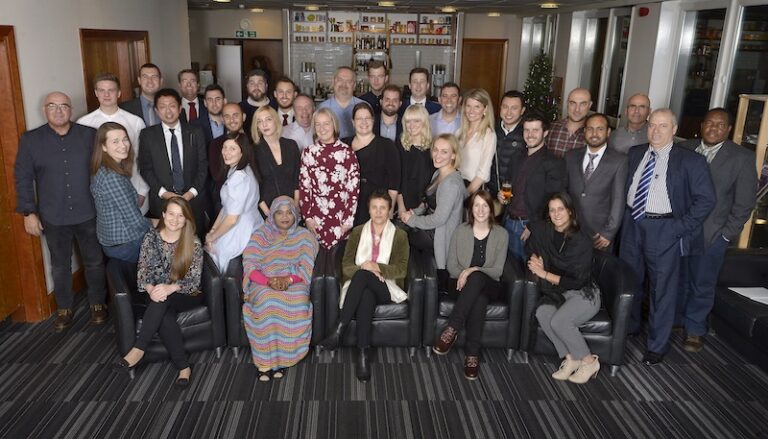Aviagen has conducted a broiler module of its Europe, Middle East and Africa (EMEA) Production Management School in Edinburgh.
Held between 26 November and 2 December, the event was designed to optimise broiler performance and economic returns for Aviagen customers, while providing a useful real-life learning environment.
This year’s School welcomed 36 students from 19 EMEA countries, who were able to learn from a team of top Aviagen and industry experts in nutrition, health, ventilation, data analysis, and broiler management.
Studies have shown that people usually learn most effectively by doing. This year’s School introduced interactive elements to give students an opportunity to learn while working through realistic scenarios that directly apply to their work on their farms at home.
A brooding workshop presented students with a hypothetical case study, allowing them to recreate a real-life situation for the important period of chick start. Through the workshop, students worked together to investigate broiler performance, troubleshoot problems and develop a strategy to improve performance.
“Aviagen has a long history of providing education to the poultry industry, with the original month-long School taking place in the US for over 50 years. The EMEA version differs slightly by featuring a series of week-long courses on the key elements within our business: breeders, broilers and hatcheries. For this 6th broiler module, we’ve taken a different approach by adopting a more practical, highly participative format to engage our students more deeply so the concepts offered will stay with them longer. We value the Schools each year as a way to effectively train future generations of poultry specialists,” explained Stuart Thomson, Aviagen Technical Services manager.
The information-packed week of learning was filled with a variety of advice to help EMEA customers maximise performance and improve the bottom line for their poultry operations.
Guest speaker and Broiler Consultant Robert Hay offered valuable insight for growing broilers. Student learning was enriched by Hay’s experiences growing up on a traditional broiler farm in north-eastern Scotland, coupled with his innovative thinking, reflected in the renewable energy initiatives that power his modern farm today.
Other noteworthy topics included Breeding for the Future, Broiler Physiology, Gut Health, Making Money, The Chicken Supply Chain, Importance of Good Data Analysis and Pivot Table Analysis.
Students had a collective pool of considerable knowledge in areas like customer service, data analysis, farm management, nutrition and veterinary medicine. Group sizes were kept small to promote a sense of camaraderie and sharing of knowledge and experiences among students and tutors.
This year the School also saw its youngest student yet, 18-year-old Jon Magnus Jonsson Jr. from Iceland. Jonsson says he attended the School to obtain knowledge of all aspects of broiler management, and his father, Jon Magnus Jonsson Sr. and family company owner, reported that the School offered his son valuable knowledge and ideas to apply to the business at home, as well as a chance to “exchange ideas with people from all over.”
Students remarked on the learning opportunities provided by the hands-on format, the practical nature of speaker Hay’s presentation, and an abundance of information they can apply immediately to their own farms. They also enjoyed the opportunities to network with students and presenters alike.
“My highlight of the week was the brooding workshop and the three different tutorials, as I was able to relate them to my day-to-day job tasks to improve our flock performance,” said Lindsey Orr, Farm Compliance manager, Moy Park.


